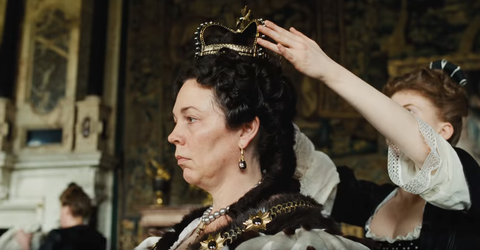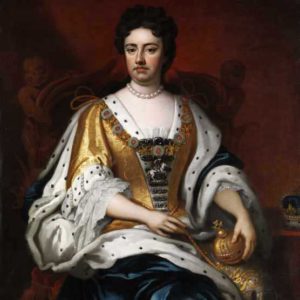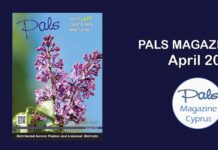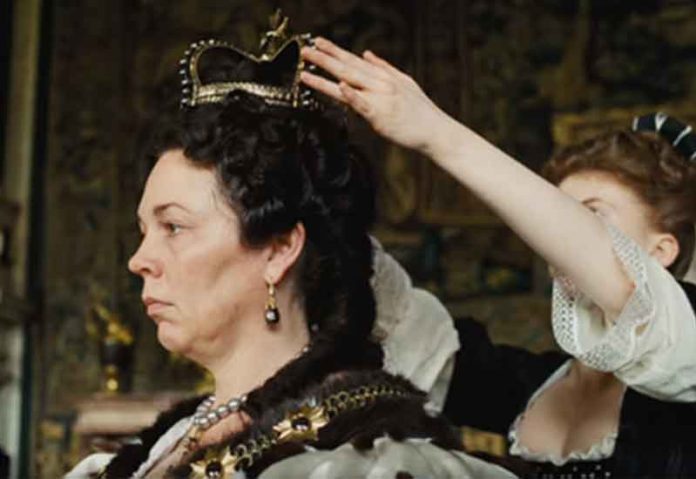Queen Anne is not exactly the best known British monarch. She reigned from 1702 to 1714, the last of the Stuart monarchs, but despite some important events during her reign, she has been almost totally overlooked by History. Simon Schama’s Three Volume History of Britain just gives her 3 passing mentions- we get no idea from these what she was like. But then came the film.
 “The Alternative” is a new film starring the wonderful Olivia Coleman as the Queen. The real Queen and the Actress are pictured. It has collected enthusiastic reviews and should be in line for various Oscars and other awards. It deals with the politics and personal relationships of the Queen, particularly with her two closest friends, Sarah Churchill, the wife of John Churchill, the brilliant military leader who later became Duke of Marlborough, and Sarah’s cousin, Abigail Masham, who started as an unimportant servant and ended up as a serious rival to Sarah, changing the politics of Britain.
“The Alternative” is a new film starring the wonderful Olivia Coleman as the Queen. The real Queen and the Actress are pictured. It has collected enthusiastic reviews and should be in line for various Oscars and other awards. It deals with the politics and personal relationships of the Queen, particularly with her two closest friends, Sarah Churchill, the wife of John Churchill, the brilliant military leader who later became Duke of Marlborough, and Sarah’s cousin, Abigail Masham, who started as an unimportant servant and ended up as a serious rival to Sarah, changing the politics of Britain.
The film is not accurate History. Film makers and dramatists have taken liberties with History to make their stories more exciting or entertaining. People go to watch the shows and come away thinking “so that’s how it was” even when it wasn’t like that at all.
My own view is that there is nothing wrong with some Dramatic Licence to liven up a story, so long as the basic storyline is fair and valid. I was impressed, for example, with Darkest Hour, despite it playing fast and loose with the facts from time to time. However, when a good story is totally fictionalised and then presented as being based on a True Story that does irritate me because the filmmaker could have kept to the true story and still made it exciting. I have no time for example for The Imitation Game, which pretends to tell the story of the great codebreaker Alan Turing, but ends up being totally misleading and inaccurate.
So how does The Alternative do? I think it just about works as History and is clearly hugely entertaining, being both very funny and very powerful storytelling.
 Queen Anne was a deeply unhappy woman who both clung to her closest friends and had complete power over them. As the second daughter of King James II, she would never have expected to end up ruling England and was never trained to be monarch. However, James II was overthrown in the so-called “Glorious Revolution” of 1688-9 (which was actually neither Glorious nor a Revolution), and he and his son barred from being monarchs. Anne’s older sister, Mary, ruled jointly with her husband, William III, but they never had any children, so quite unexpectedly Anne became the heiress. I doubt she ever wanted to be Queen.
Queen Anne was a deeply unhappy woman who both clung to her closest friends and had complete power over them. As the second daughter of King James II, she would never have expected to end up ruling England and was never trained to be monarch. However, James II was overthrown in the so-called “Glorious Revolution” of 1688-9 (which was actually neither Glorious nor a Revolution), and he and his son barred from being monarchs. Anne’s older sister, Mary, ruled jointly with her husband, William III, but they never had any children, so quite unexpectedly Anne became the heiress. I doubt she ever wanted to be Queen.
Her personal life was tragic. She was devoted to her husband, Prince George of Denmark, an amiable nonentity who took no part in politics, and had 17 children. Every single child died young. Most were stillborn or died within a few days. A few children lived longer and had love and responsibilities placed on them, but still died young-William, her longest living child, died when he was 9.
Anne of course had the finest doctors in the land to attend to her- although in those days doctors often did more harm than good with their remedies. It was common to lose half your children when they were young, but Anne was particularly unlucky to lose every child. It must have been heartbreaking for the parents.
I choose this example out of many to sum up the accuracy of the film. The film never even mentions Prince George- a good example of how uninteresting characters are dismissed in cinema. The 17 dead children are symbolised by Anne endlessly playing with 17 pet rabbits. In reality Prince George did exist and there were never any rabbits. Yet despite turning History on its head, I think this is justified Dramatic Licence. The rabbits stand for her loss.
Another interesting feature of the film is that it is dominated by strong women. The politicians- all men of course and some of them very able men- hold office, make decisions, and help make Britain a world power, but they are all dependent on the Queen’s approval and have to work their way through the complicated and intense relationships Anne had with Sarah and Abigail.
All in all, a good film and congratulations on shining light on an obscure but important period of History. The film is recommended.










